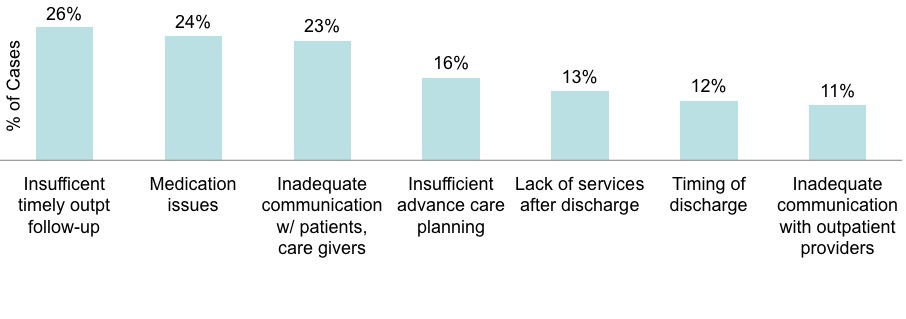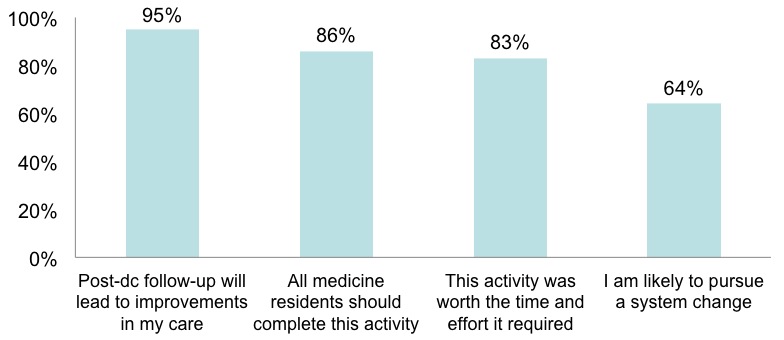
|
Authors | Institution |
|
Kara Bischoff MD Jayson Morgan MD Yimdriuska Magan Harry Hollander MD Michelle Mourad MD Sumant Ranji MD |
University of California, San Francisco School of Medicine |
 |
|
||||||
| Teaching Transitions of Care through Analyzing Readmissions |
DESCRIPTION OF THE INNOVATION


Discharge counseling for patients: “In the future I will be sure to include written instructions about what to do if symptoms return/worsen and when to return to the ED, and not simply verbal instructions.”
Patient education about medications: “The patient went home with poor understanding of her medications … Med teaching may need to happen many times before it sinks in, but it needs to continue to happen until a patient understands.”
Involving the PMD and family: “We could have involved the PMD more up front or made a point of contacting the caregivers to get input… I will put more effort into getting information from all parties participating in my patient’s care.”
Motivating patients to care for themselves: “His case is a reminder of how brittle our patients with exacerbation-prone illnesses can be, and also the enormously important role that proper self-care plays in keeping patients out of the hospital.”
Advance care planning: “The patient’s goals of care rapidly evolved during these two admissions… This reminds me how important it is to engage family members and the patient throughout the hospitalization as the patient’s condition evolves in order to provide the most appropriate care.”
Medication availability upon discharge: “I will try to ensure med availability prior to discharge.”
Timely outpatient follow-up: “This case highlighted the importance of close follow-up - our team identified that this patient’s poor baseline functional status put her at high risk for complications at the time of her transition to home. Fortunately, early appointments with her outpatient providers allowed her persistent/recurrent infection to be identified early.”
PCP communication: “With complicated discharges, always make sure to complete a thorough verbal sign-out to the PCP if possible!”
RESIDENTS' IMPRESSIONS OF THIS EXERCISE
Percentage of residents who agree or strongly agree.

 Send Email
Send Email
